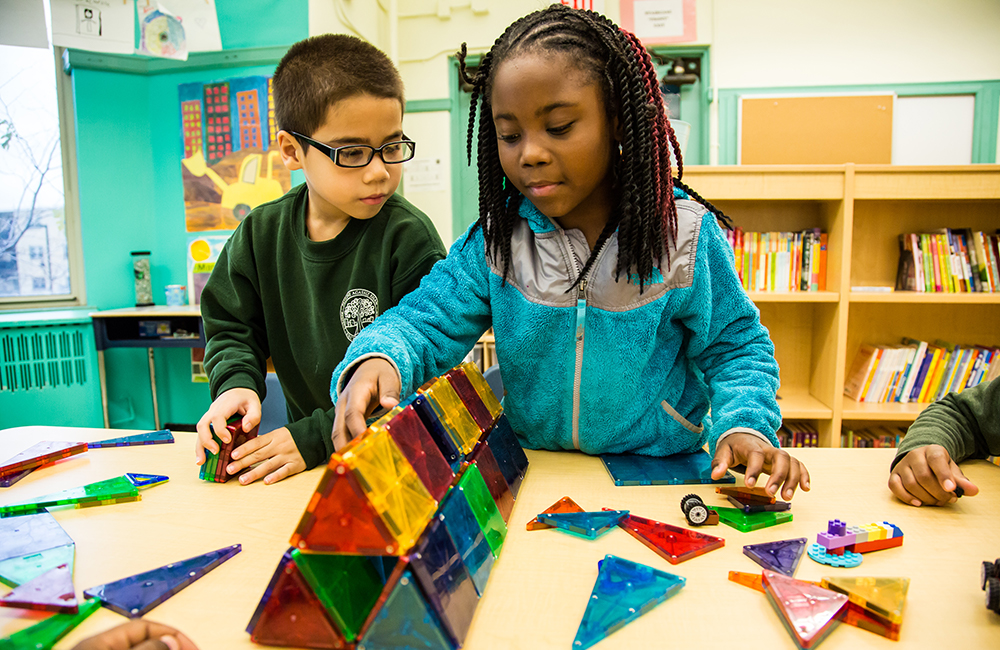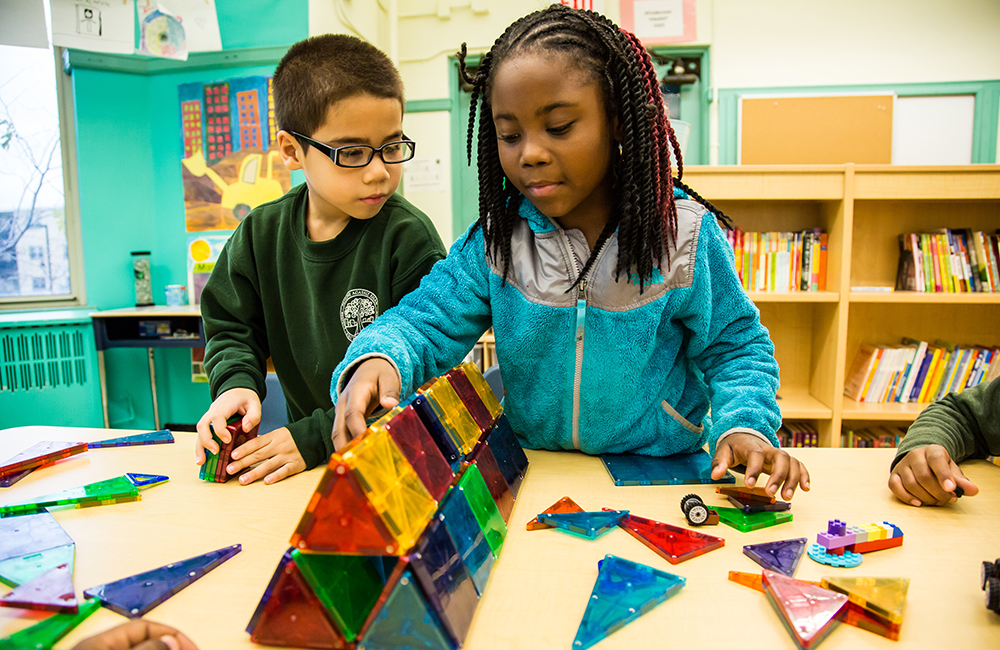Primary


Primary
What it does
Homelessness, hunger, and the instability of foster care have consequences in all areas of children’s lives, including school. Based at Boston College, City Connects trains and places a coordinator within each partner school to work with teachers and staff to assess the needs and strengths of students in four domains: academic, social-emotional learning, health, and family. The coordinator creates an adaptable, individualized plan for low income Pre-K through 8th grade students and their families by leveraging existing services and programs in the school and community. Students at highest risk receive more in-depth review and services. The coordinator becomes a trusted point-of-reference for all out-of-school issues.
A structured yet adaptable model and rigorous data collection has led to consistent implementation and results across 79 schools in Connecticut, Massachusetts, Minnesota, New York, and Ohio. City Connects only works with schools and districts that are willing to bring in community resources, thus helping to ensure follow-through on individual plans and referrals.
How effective is it
The average City Connects student gains about 12 percentile points in reading and math scores compared to a matched comparison student. High school dropout rates of their students were also seven percentage points lower than low income students overall. The program costs about $4,570 per student for six years, which covers personnel, materials, facilities, and increased community service provider costs. Using these success rates and program costs, CHIP estimates it costs approximately $65,300 for each student to graduate high school (who otherwise wouldn’t) and to receive socio-emotional, health, and family support that help beyond school. Compare that to an estimated $623,000 in social welfare costs and lost income/tax revenue per high school dropout to understand City Connects’ ‘bang for buck’: a savings of over $9 for every $1 spent on the program.
How you can help
Only about 10% of the $65,300 needed to help a child graduate is funded by schools/districts; City Connects relies on philanthropy to cover the remaining 90% of its budget needs. You can donate any amount to City Connects through Boston College’s website. Donors help City Connects expand into new districts, connect to district partners, and provide some of the financial investment needed to start the program.
Personalize this project
If City Connects is not in your region, there are other similar models. Community Schools is a relatively new district-level wrap-around service initiative, but it does not have much data yet—or funding for data collection. Donors interested in Community Schools can give to local education funds, fund evaluation, or support nonprofit partners. To learn more, visit the Coalition for Community Schools. The nonprofit network Communities in Schools also addresses similar issues at more sites, but diversity across the network means more variation in implementation and effectiveness, so make sure to evaluate local outcomes.
